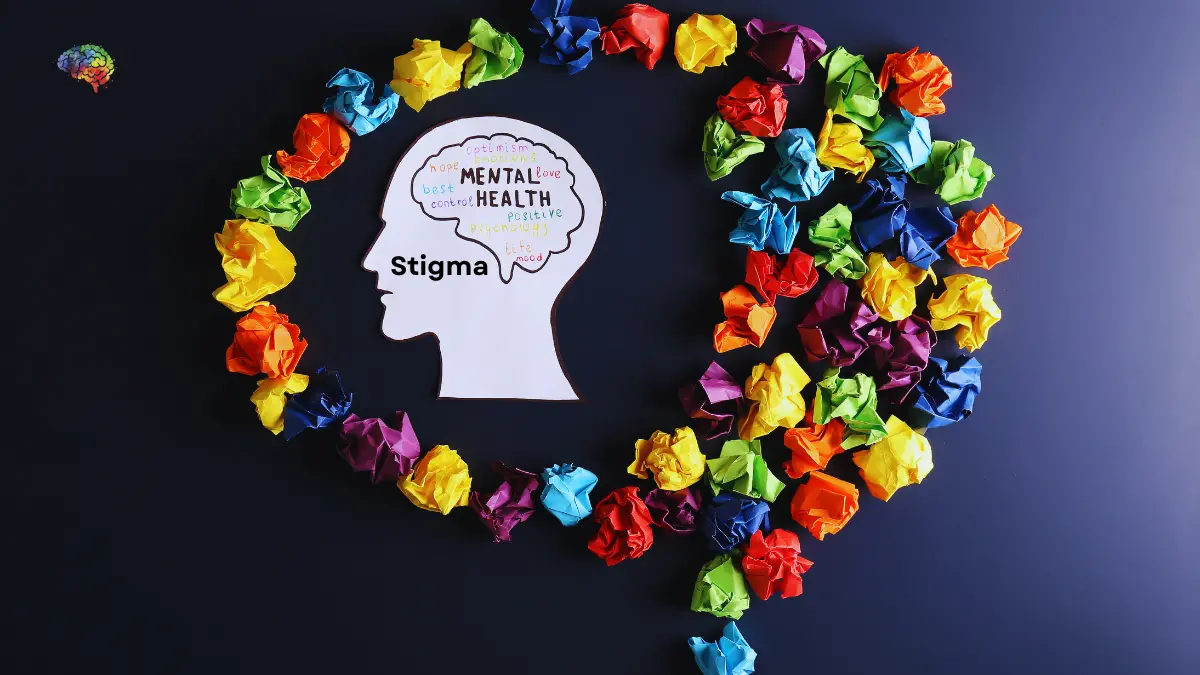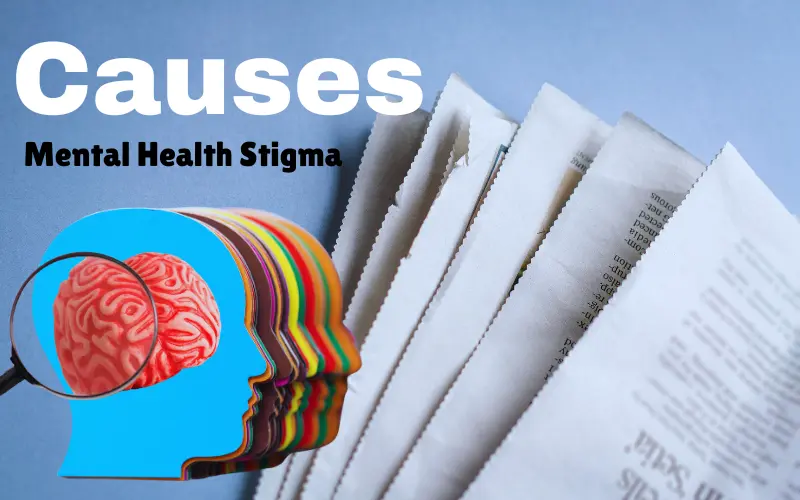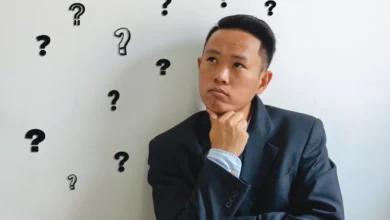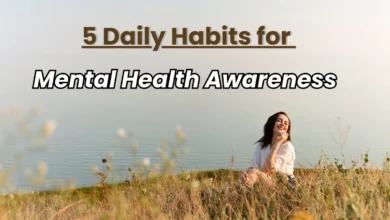Mental Health Stigma: Causes & Effects Explained

Introduction: The Quiet Barrier to Better Mental Health
It’s 2025, and we’ve made incredible progress in many areas of health and technology—yet mental health stigma still lingers like an unwanted guest who refuses to leave. When someone says, “I have depression,” the reaction is often uncomfortable. People shift in their seats, avoid eye contact, or offer a nervous chuckle, unsure of what to say next. That awkward silence speaks volumes.
In an age where we freely talk about physical health problems, why does mental illness stigma still hold such power?
This article takes a hard, honest look at mental health stigma—where it comes from, how it shows up in everyday life, and what damage it can do to individuals and communities. Because understanding the roots and impact of stigma is the first step toward building a more compassionate, mentally healthy world.
What is Mental Health Stigma?
Mental health stigma refers to negative attitudes, beliefs, and prejudices directed toward individuals who struggle with mental health conditions. It’s like a mental wall, built by society, that separates those with mental illnesses from those without. It manifests in judgments, stereotypes, and a general feeling of being “othered.”
There are several layers to stigma—public, self, and institutional—and each of them leaves a mark on those who are affected by it.
The Causes of Mental Health Stigma
Stigma doesn’t just magically appear—it’s learned. Here’s where it all starts:
a) Cultural and Social Beliefs
In many cultures, mental health conditions are seen as something to be ashamed of. Mental illness is viewed through a lens of moral weakness or personal failure. People often say things like, “Pull yourself together!” or “Just think positive!” These cultural attitudes help perpetuate psychological stigma, reinforcing the idea that mental health struggles are a personal flaw.
b) Media Portrayals of Mental Illness
The media is guilty of shaping public perceptions of mental illness. Most portrayals are extreme—think villains in movies with vague mental disorders or news reports linking violence with mental health issues. These skewed depictions contribute to a distorted view of those struggling with mental health, reinforcing mental illness stigma.

c) Lack of Awareness and Education
A major cause of mental health stigma is ignorance. Many people simply don’t understand mental health conditions, and as a result, they project harmful stereotypes onto individuals with mental illness. For example, someone with depression might be labeled “lazy,” or someone with anxiety might be seen as “overreacting.” Educating the public can reduce these misconceptions and begin to eliminate the stigma in mental health.
d) Fear and Misunderstanding
Humans often fear what they don’t understand. When it comes to mental illness, fear of the unknown contributes to psychological stigma. People may fear someone with a mental health condition because they don’t know how to act around them or fear what might happen if they do. This leads to isolation and judgment rather than support.
The Effects of Mental Health Stigma
Now that we know what causes stigma, let’s talk about the effects. These effects go far beyond hurt feelings. The consequences of mental illness stigma can be detrimental to those affected.
a) Barriers to Seeking Help
The most significant effect of mental illness stigma is that it discourages people from seeking help. If someone feels that seeking therapy or counseling will make them seem “weak” or “unstable,” they’re less likely to pursue treatment. This often leads to worsening symptoms and a delay in recovery. In fact, studies show that fear of stigma causes many people with mental health issues to delay or avoid treatment.
b) Social Isolation and Loneliness
When people feel stigmatized for their mental health, they often withdraw from social circles. Their fear that others will judge or ridicule them for their struggles often keeps them isolated. This loneliness can exacerbate their condition, making it harder to heal.
c) Lower Self-Esteem and Self-Worth
Self-stigma is another dangerous side effect. When individuals internalize negative beliefs about their mental health, they often feel shame, guilt, and self-doubt. This can lead to a decrease in self-esteem and self-worth, which only worsens their mental state. If you believe you’re unworthy of help or love because of your mental illness, it’s much harder to recover.
d) Discrimination in the Workplace and Education
Imagine being passed over for a promotion because someone assumes your anxiety or depression will affect your performance. Or imagine a student who avoids asking for accommodations because they fear others will label them as sensitive or emotionally overwhelmed. These are real-world effects of mental illness stigma. People with mental health conditions often face discrimination in their careers and education due to outdated misconceptions.
How We Can Help
Combating mental health stigma isn’t just about changing the way individuals think—it’s about shifting the mindset of entire communities. It starts with acknowledging that mental health challenges are just as real and valid as physical health issues. When we normalize conversations around anxiety, depression, trauma, or therapy, we open the door for compassion and understanding to replace silence and shame.
We all have a role to play, whether it’s calling out a harmful stereotype, supporting a friend who’s struggling, or educating ourselves about mental health conditions. Every small act of empathy chips away at the larger wall of stigma. Schools, workplaces, and families can become safe spaces only when we actively foster acceptance, not judgment.
Remember, change begins with awareness—but it doesn’t stop there. By making mental health part of our daily conversations, challenging outdated beliefs, and encouraging others to seek help without fear, we contribute to a world where no one feels alone in their struggles. That’s how we build a more compassionate and mentally healthy society—one honest conversation at a time.
Conclusion: Break the Silence
In conclusion, mental health stigma remains one of the biggest barriers to emotional wellbeing in our society. Rooted in cultural beliefs, misinformation, and negative portrayals in media, stigma surrounds mental illness with fear and misunderstanding. This often leads to silence, shame, and people struggling alone instead of seeking support.
The effects of this stigma aren’t just emotional—they’re life-altering. Many avoid therapy or delay getting help because they fear judgment. Others choose isolation, struggling not only with their mental health but also with how deeply misunderstood they feel. Over time, this can erode self-esteem, relationships, and even the hope of recovery.
But awareness is the first step. By learning about mental health stigma and its real-life impact, we can start shifting the conversation. Creating a culture of empathy, education, and openness isn’t just possible—it’s necessary. The more we talk about it, the less power stigma holds.










Found helpful
Easy to log in and lots of fun on wwwfb7771comlogin. Great user interface. I tell all my friends! Check it out wwwfb7771comlogin
Okay, so I was having major trouble logging into Sikkimgame! Found the official sikkimgameloginlink and it worked like a charm. Sharing it here in case anyone else is struggling!
Thinking about joining Sikkimgame. The sikkimgameregister process seems easy enough, but is it actually worth the time? Any seasoned players wanna share some tips?
Just placed a small bet on skyluckyjackpotbet. Hoping for that lucky jackpot! I’ll keep you guys updated if I win big *fingers crossed*!
Looking for those sweet casino bonuses at Lucky Block. Hope they actually pay out unlike some other places. Wish me luck! Sign up here! luckyblockcasinobonus
Alright, phoneclubcasino, you’ve got my attention! Seems like a decent spot to try my luck. Fingers crossed! Check it out here: phoneclubcasino
Alright betbet, let’s get betting! Hoping for some big wins this time. Time to risk it for the biscuit: betbet
Guys, check out w88dangnhapw88vt. I was a little skeptical at first, but it actually works. It’s cool to use. Definitely worth a click w88dangnhapw88vt.
I was browsing around and stumbled upon 12345jili. Honestly, it’s pretty awesome! You really should check them out. You will not be dissapointed 12345jili.
55winzz is a solid choice if you’re looking for a new spot to game. Their bonuses are decent and the interface is pretty user-friendly. My recommendation: 55winzz
There is noticeably a bundle to learn about this. I assume you made sure good factors in features also.
Hi! I could have sworn I’ve been to this site before but after browsing through some of the post I realized it’s new to me. Nonetheless, I’m definitely happy I found it and I’ll be book-marking and checking back frequently!